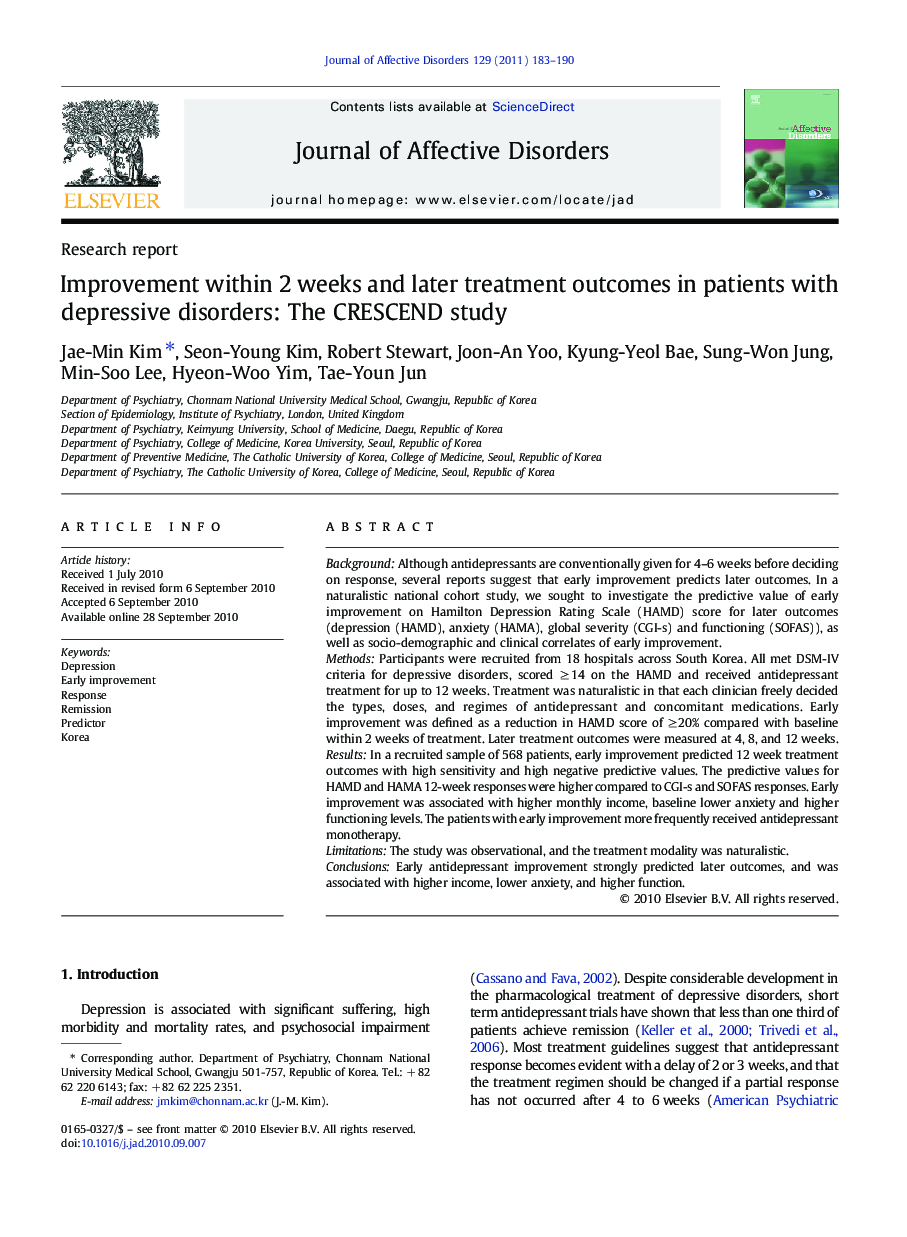| Article ID | Journal | Published Year | Pages | File Type |
|---|---|---|---|---|
| 4186522 | Journal of Affective Disorders | 2011 | 8 Pages |
BackgroundAlthough antidepressants are conventionally given for 4–6 weeks before deciding on response, several reports suggest that early improvement predicts later outcomes. In a naturalistic national cohort study, we sought to investigate the predictive value of early improvement on Hamilton Depression Rating Scale (HAMD) score for later outcomes (depression (HAMD), anxiety (HAMA), global severity (CGI-s) and functioning (SOFAS)), as well as socio-demographic and clinical correlates of early improvement.MethodsParticipants were recruited from 18 hospitals across South Korea. All met DSM-IV criteria for depressive disorders, scored ≥ 14 on the HAMD and received antidepressant treatment for up to 12 weeks. Treatment was naturalistic in that each clinician freely decided the types, doses, and regimes of antidepressant and concomitant medications. Early improvement was defined as a reduction in HAMD score of ≥ 20% compared with baseline within 2 weeks of treatment. Later treatment outcomes were measured at 4, 8, and 12 weeks.ResultsIn a recruited sample of 568 patients, early improvement predicted 12 week treatment outcomes with high sensitivity and high negative predictive values. The predictive values for HAMD and HAMA 12-week responses were higher compared to CGI-s and SOFAS responses. Early improvement was associated with higher monthly income, baseline lower anxiety and higher functioning levels. The patients with early improvement more frequently received antidepressant monotherapy.LimitationsThe study was observational, and the treatment modality was naturalistic.ConclusionsEarly antidepressant improvement strongly predicted later outcomes, and was associated with higher income, lower anxiety, and higher function.
